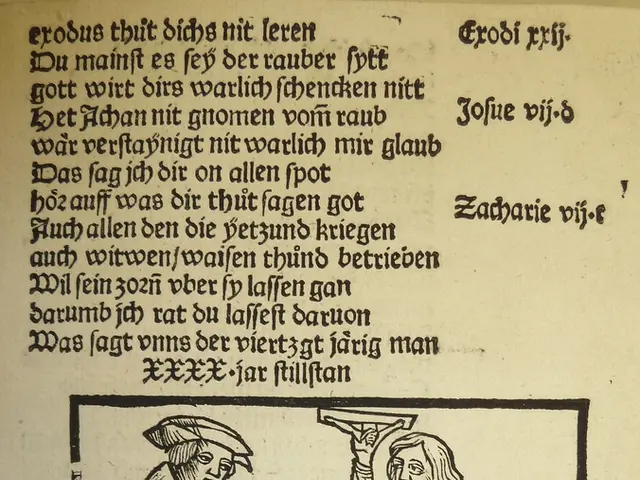Exploring the reality behind the story: A look at the genuine Robert Oppenheimer, known as the 'Father of the Atomic Bomb'
In the realm of historical dramas, Christopher Nolan's latest film, "Oppenheimer," offers a compelling portrayal of the life of J. Robert Oppenheimer, the American physicist who played a pivotal role in the development of the atomic bomb during World War II.
The film, while taking creative liberties, remains grounded in factual events and transcripts. For instance, it incorporates real-life dialogue from Oppenheimer's 1954 security clearance hearing and the Senate confirmation debacle of Lewis Strauss, providing viewers with an immersive historical context.
One of the most debated scenes in the film is the depiction of the Trinity Test, the first detonation of an atomic bomb. Nolan used unconventional methods, such as exploding thermite in a sandbox, to recreate the explosion, aiming to convey the awe and historic significance of the event.
However, the film does not shy away from artistic interpretation. Scenes like whirling stars and molten lava are more symbolic than factual, adding an emotional layer to the film rather than strictly adhering to reality.
Oppenheimer's inner turmoil, particularly his reactions to the ethical implications of his work, is another area where the film takes creative liberties. The movie captures his emotional struggles effectively, portraying him as a man haunted by the consequences of his actions.
J. Robert Oppenheimer was indeed a real-life physicist who headed the secret research laboratory in Los Alamos, New Mexico, and oversaw the development of the world's first atomic weapons between 1943 and 1945. His life was marked by complex relationships with figures like Lewis Strauss, General Leslie Groves, Kitty Oppenheimer, and Jean Tatlock.
Oppenheimer's political leanings were anti-fascist, and he was motivated by the desire to end the war with Nazi Germany. After the detonation of the two atomic bombs in August 1945, he never worked on weapons again, expressing concern about the moral weight of deploying the atomic bomb.
In the days following the bombs, Oppenheimer plunged into a deep depression, fearing for the lives of innocent people in Japan. Despite this, he believed that the use of the atomic bomb could persuade humanity to never again fight total warfare like the Second World War.
While "Oppenheimer" balances historical accuracy with artistic expression, it is essential to remember that it is a film and not a documentary. It provides a powerful and emotional portrayal of Oppenheimer's life, but viewers should approach it with a critical eye, recognising the creative liberties taken.
- The film "Oppenheimer" discusses J. Robert Oppenheimer's role in the development of atomic bombs, a significant event in the realm of science and general news.
- In the film, Oppenheimer's involvement in the Trinity Test, a event in space-and-astronomy, is portrayed artistically yet factually.
- Oppenheimer's inner struggles and reactions to his work's ethical implications are portrayed emotionally in the film, a key aspect of lifestyle and entertainment.
- Oppenheimer's life was filled with complex relationships with figures like Lewis Strauss and Kitty Oppenheimer, reflecting personal-finance and business dealings.
- Education-and-self-development can benefit from understanding Oppenheimer's anti-fascist political leanings and his concerns about the use of atomic bombs in military conflicts, such as sports and wars.
- The film industry, specifically investing in Christopher Nolan's "Oppenheimer," is a business decision that can yield a return through box office revenues, aligned with finance and investing.
- Lastly, viewers should remember that "Oppenheimer" is a historical drama, not a documentary, requiring a critical approach to understanding its artistic liberties within the broader context of medical-conditions, technology, and entertainment.




